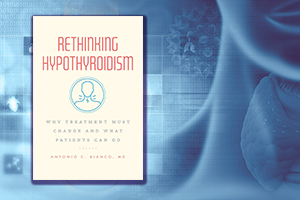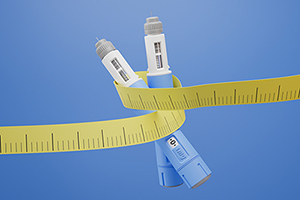



| By Neil Edward Levin

To my readers:
Lately, I’ve been doing “damage control” on studies that claim that “supplements don’t work” and that all you need to do to stay healthy is to “eat a healthy diet.” Here’s a comprehensive rebuttal to those oft-repeated memes from a respected nutritional scientist.
—Dr. Hoffman
(This article contains content provided by one of our trusted sponsors, Protocol for Life Balance. Read more about them here.)
What is the role of supplements in a healthy diet?
Dietary supplements can be an important part of a healthy diet. Surveys indicate that the health professionals most familiar with nutrition – dietitians, nutritionists, and pharmacists – are most likely to use dietary supplements as part of their daily routine. In addition, some scientific studies have shown that the food supply has had a noticeable and significant decline in concentrations of vitamins, minerals, protein, and antioxidants over the last half-century or so.
Data from the U.S. Department of Agriculture and the United Kingdom have shown very steep declines of trace minerals in fruits and vegetables, where the levels have dropped by up to 76%. Minerals in meat and dairy products have also shown dramatic declines. For example, copper levels have fallen in many meat products by up to 60%, magnesium levels by 10%, dairy foods have had drops in copper of 90%, and the calcium loss in some cheeses has been up to 70%.
The change in agricultural methods, including the use of single cultivars with synthetic agricultural fertilizers and pesticides, has led to a real decline in the nutritional value of foods in recent decades. This “dilution effect” becomes magnified when you consider that USDA food tables, built around 1940, do not reflect the current nutritional value of the food supply. Yet it is a common practice for food companies to utilize USDA food tables in building their Nutrition Facts that are on Americans’ food labels. And these inadvertently inaccurate food labels are commonly used in studies utilizing food recall surveys that determine the level of nutrition among the General Public.
The more recent changes include the introduction of genetically modified (GM/GMO) foods coupled with a dramatic growth in the use of pesticides that the new crops are now tolerant of. These factors may have accelerated the declines in the nutritional content of the food supply. Studies have indicated that some GMO foods contain less of certain nutrients than the conventional versions of those foods, which could accelerate the decline in the nutritional value of our food supply and increase its differences from the official USDA food tables.
This leads to the inevitable conclusion that taking a multivitamin (at least) would be a reasonable form of nutritional insurance to assure that one is getting at least the minimum amount of essential nutrients in the diet. Many people can also benefit by taking targeted supplements to compensate for specific diets and dietary limitations. For example, those on vegetarian diets might require supplements to supply vitamin B12, iron, essential fatty acids such as EPA and DHA, as well as protein. Gluten-free dieters might benefit by the addition of fiber and replacing some of the fat-soluble vitamins such as vitamins A, D, and E that might be missing in a diet that’s devoid of the typical grains providing those nutrients. People eating low-fat diets might benefit by taking some of the nutrients that would be in those fatty foods, including plant sterols and vitamins A, D, and E,
What are the deficiencies that you believe are most prevalent in the average American diet?
Official government statistics indicate that most Americans are deficient in a number of essential nutrients. For example, the percentage of population with nutrient intakes below the RDA include 75% of women and 80% of men deficient in vitamin A; 45% of non-smokers deficient in vitamin C; 75% of men and 90% of women deficient in vitamin C if they’re smokers; over 95% of the population deficient in vitamin E; and 85% of women ages 19 to 50 deficient in iron. We have seen a resurgence of iodine deficiency-related goiters in the population; not only in the Midwest but in areas of New England where theoretically more seafood would be eaten that would be a source of the iodine needed to prevent goiters. Even rickets has started to appear in children of African-American mothers who are not breastfeeding their children or supplementing with vitamin D; these women and their children are more susceptible because their darker skin makes it more difficult to manufacture Vitamin D from sunlight to supplement their apparently vitamin D-deficient diets.
How can we eat in a way that promotes wellness over a lifetime?
Promoting Wellness by dietary strategy would include eating as much organically grown foods as possible. For meat and dairy products the use of foods from grazing animals would predict a higher level of certain healthy fats with their associated fat-soluble nutrients, including vitamins A, E, and K, plus iron and copper, than conventionally raised versions of those animal-derived foods. Avoidance of processed foods is another key strategy in promoting lifetime Wellness. Health issues associated with an over-processed diet may include obesity, diabetes, cardiovascular disease, chronic inflammatory states, oxidative stress, cancer, and chronic constipation. When I survey the opinions of health experts – Dr. Ronald Hoffman for example – I see a number of foods that are common to their lists of foods that everyone should be eating. I would summarize the healthiest diets as including beans (soybeans are the most common ones cited, but other legumes are also healthy), berries, green vegetables (especially broccoli and cruciferous vegetables), whole grains (can be gluten free, if needed), low-fat dairy, green or black tea, dark chocolate, certain nuts (especially almonds and walnuts), other fruits, deep pigmented vegetables that are rich in carotenoids, and salmon (oceanic, not pond-raised).
What myth or misunderstanding about nutrition do you encounter most often?
The greatest myth I hear about nutrition is that it’s easy to get all the nutrients you need from a healthy diet without supplementation. The reason why I call that a myth is because that’s kind of a mantra that a lot of health professionals will routinely tell people, but they ignore the reality that government surveys consistently show large portions of the population do not eat that way to get all the nutrients that they need from their diet. Isn’t it sensible to simply take a multivitamin and cover most of those potential gaps safely and effectively? Instead, they “guilt trip” the public and blame them for their nutrient deficiencies when the food supply is largely to blame. Of course, supplements should also be considered when addressing bad dietary habits and deliberate restrictions in food options that are inevitable when following special diets.
Neil Edward Levin, CCN, DANLA
NOW® Senior Nutrition Education Manager
[Past President, American Nutrition Association]
Though we think of declining estrogen as the hallmark of menopause, it's actually common for…

Up to 12 percent of Americans have ulcers at some point in life. Peptic ulcers…
Gallbladder disease is a modern illness. An estimated 20 million Americans have gallbladder disease. The…

Dr. Antonio Bianco, recipient of the American Thyroid Association’s John B. Stanbury Thyroid Pathophysiology Medal,…

There’s a misconception among low-carb dieters. Many people believe a low-carb diet is much higher…

New, more powerful weight loss drugs: Drugs like Wegovy, Rybelsus, Ozempic and Mounjaro/Zepbound are revolutionizing…

Leyla Weighs In: Eating for Energy and Emotional Well-Being

Our virtual voicemail is open 24/7, so there's no need to wait to submit your questions for Dr. Hoffman. Leave a message, and you may hear your question featured on the Intelligent Medicine radio program!